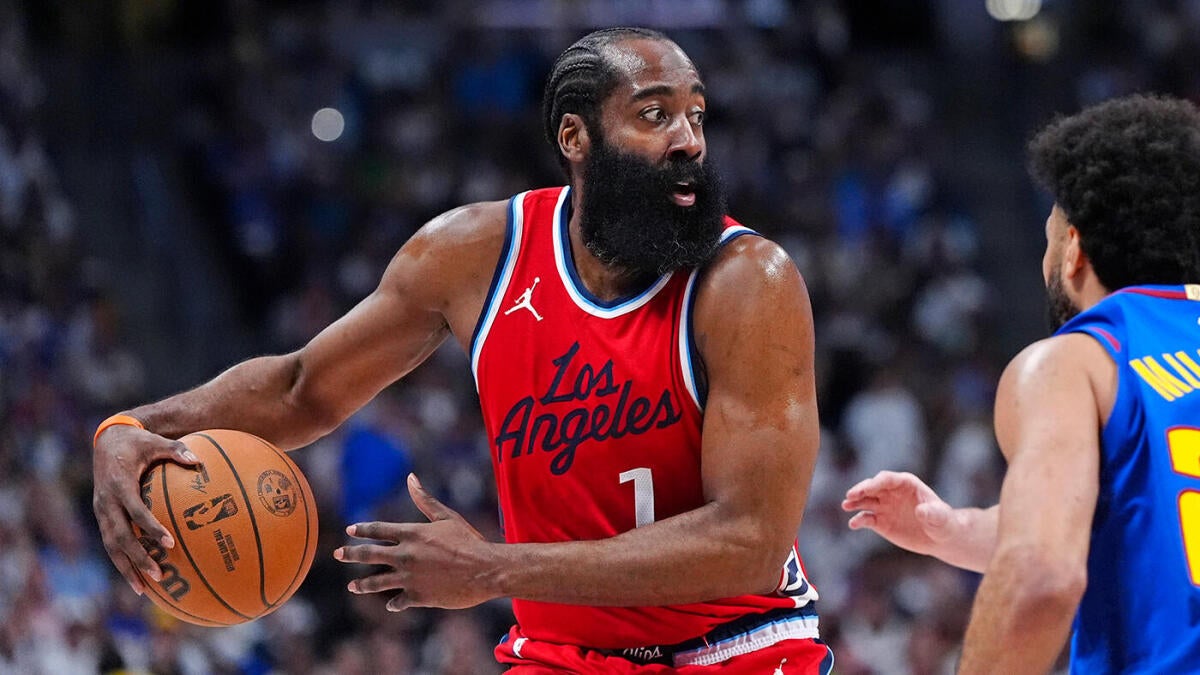“`markdown
James Harden’s Game 7 Disappearance: A Closer Look at the Clippers’ Playoff Collapse
The Weight of a Game 7
Game 7s are the NBA’s ultimate litmus test—a single game that separates contenders from pretenders. On May 3, 2025, the Los Angeles Clippers faced this crucible against the Denver Nuggets, only to crumble spectacularly in a 120-101 defeat. The loss wasn’t just a failure; it was an unraveling, exposing familiar flaws in James Harden’s playoff résumé and the Clippers’ fragile postseason identity.
Harden’s stat line—seven points on eight shots—wasn’t just underwhelming; it was emblematic of his career-long struggle to deliver when stakes are highest. For a player who had just dropped 28 points in Game 6 to force the decisive matchup, this regression to the mean felt like a cruel joke. The Clippers, a team built to contend, instead became another cautionary tale about playoff volatility.
Harden’s Playoff Paradox
James Harden’s legacy is a study in contrasts. The regular-season maestro, a former MVP and scoring champion, transforms into a diminished version of himself when the playoffs intensify. His Game 7 no-show wasn’t an anomaly; it was part of a pattern.
Consider the history:
– 2015 (Rockets vs. Warriors): Harden’s 14-point, 12-turnover disaster in a closeout Game 5.
– 2017 (Rockets vs. Spurs): A 2-for-11 shooting night in an elimination Game 6.
– 2025 (Clippers vs. Nuggets): Seven points in a series-deciding game.
These aren’t isolated slumps—they’re defining moments in a career that lacks the signature playoff performances of his peers. Harden’s brilliance is undeniable, but his inability to elevate when it matters most has become an inescapable narrative.
The Clippers’ Jekyll-and-Hyde Act
The Clippers’ series against Denver was a microcosm of their larger playoff struggles. In Game 6, they played with urgency, riding Harden’s 28-point outburst to extend the series. Yet, in Game 7, that cohesion vanished. The offense stagnated, defensive rotations lagged, and the Nuggets pounced.
Key issues emerged:
– Inconsistent Effort: The Clippers’ intensity waxed and waned, a recurring flaw in their playoff runs.
– Overreliance on Stars: When Harden and Paul George (who shot 4-of-16) faltered, the supporting cast couldn’t compensate.
– Defensive Breakdowns: Denver’s 35-point lead at one stage highlighted the Clippers’ lack of adjustments.
This wasn’t just a bad game—it was a systemic failure. The Clippers, for all their talent, remain a team that can’t reliably summon their best when elimination looms.
The Nuggets’ Masterclass
While the Clippers floundered, the Nuggets thrived. Aaron Gordon’s two-way dominance and Christian Braun’s unexpected offensive burst (18 points off the bench) underscored Denver’s depth and adaptability. Unlike the Clippers, the Nuggets played with a clear identity: physical, disciplined, and unshaken by pressure.
Their second-half surge—turning a close game into a rout—was a testament to their championship pedigree. Denver didn’t just win; they exposed the Clippers’ mental and tactical frailties.
The Fallout: Questions for Harden and the Clippers
This loss reverberates beyond a single series. For the Clippers, it’s another playoff disappointment in a decade defined by them. The “Lob City” era never reached the Finals, and this iteration, despite its star power, seems haunted by the same ghosts.
For Harden, the questions are more personal. At 34, his window for redefining his legacy is narrowing. Can he shed the “playoff underperformer” label? Or will his career be remembered for regular-season fireworks that fizzled when it mattered?
Conclusion: The Uncomfortable Truth
The Clippers’ Game 7 collapse wasn’t just a loss—it was a revelation. It laid bare the team’s fragility and Harden’s enduring playoff paradox. In the NBA, greatness isn’t measured by stats alone; it’s defined by moments. And in the moments that matter most, Harden and the Clippers keep coming up short.
For both, the path forward is clear: either find a way to conquer the pressure, or accept that their legacies will be defined by the games they couldn’t win.
“`











